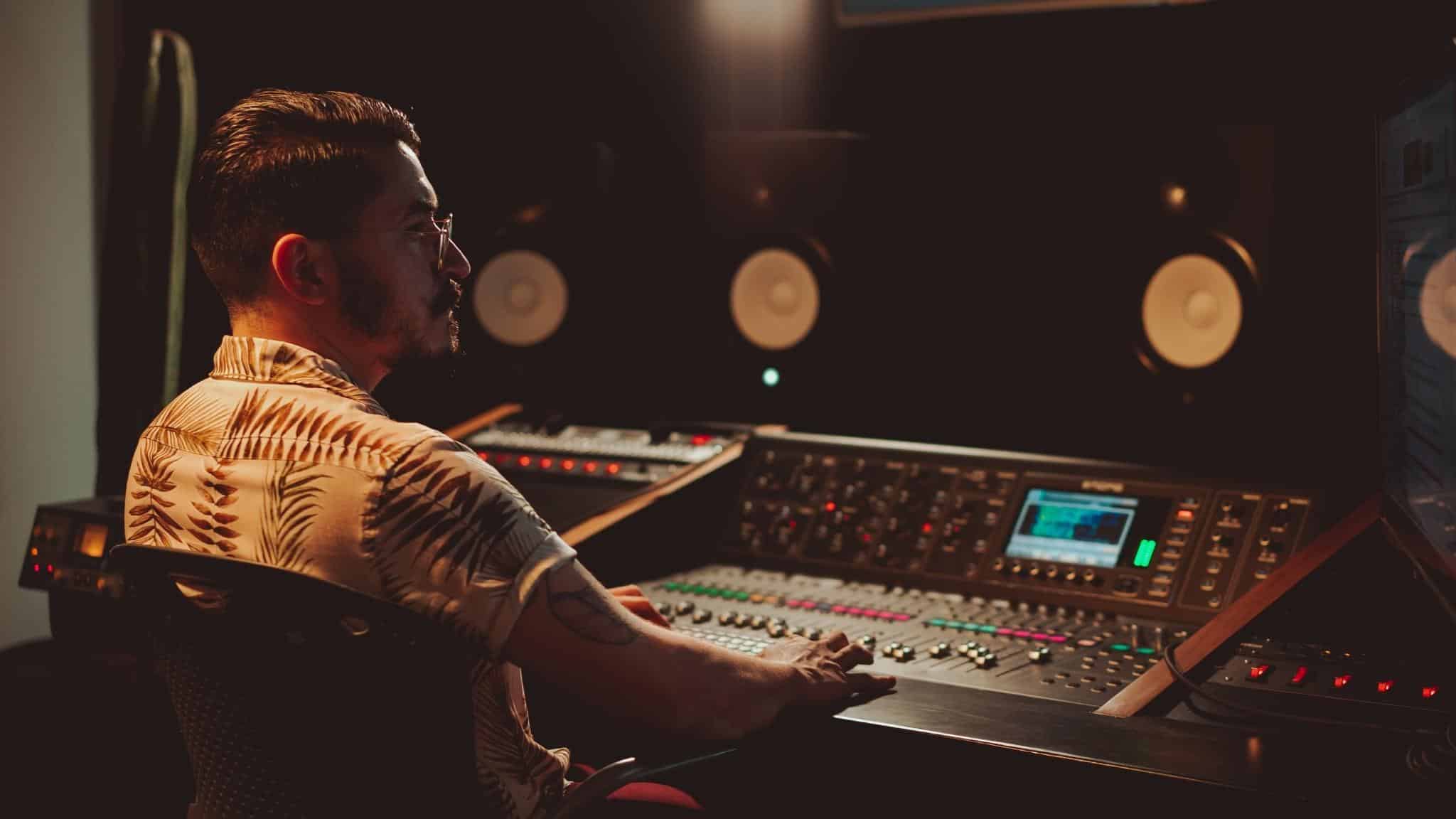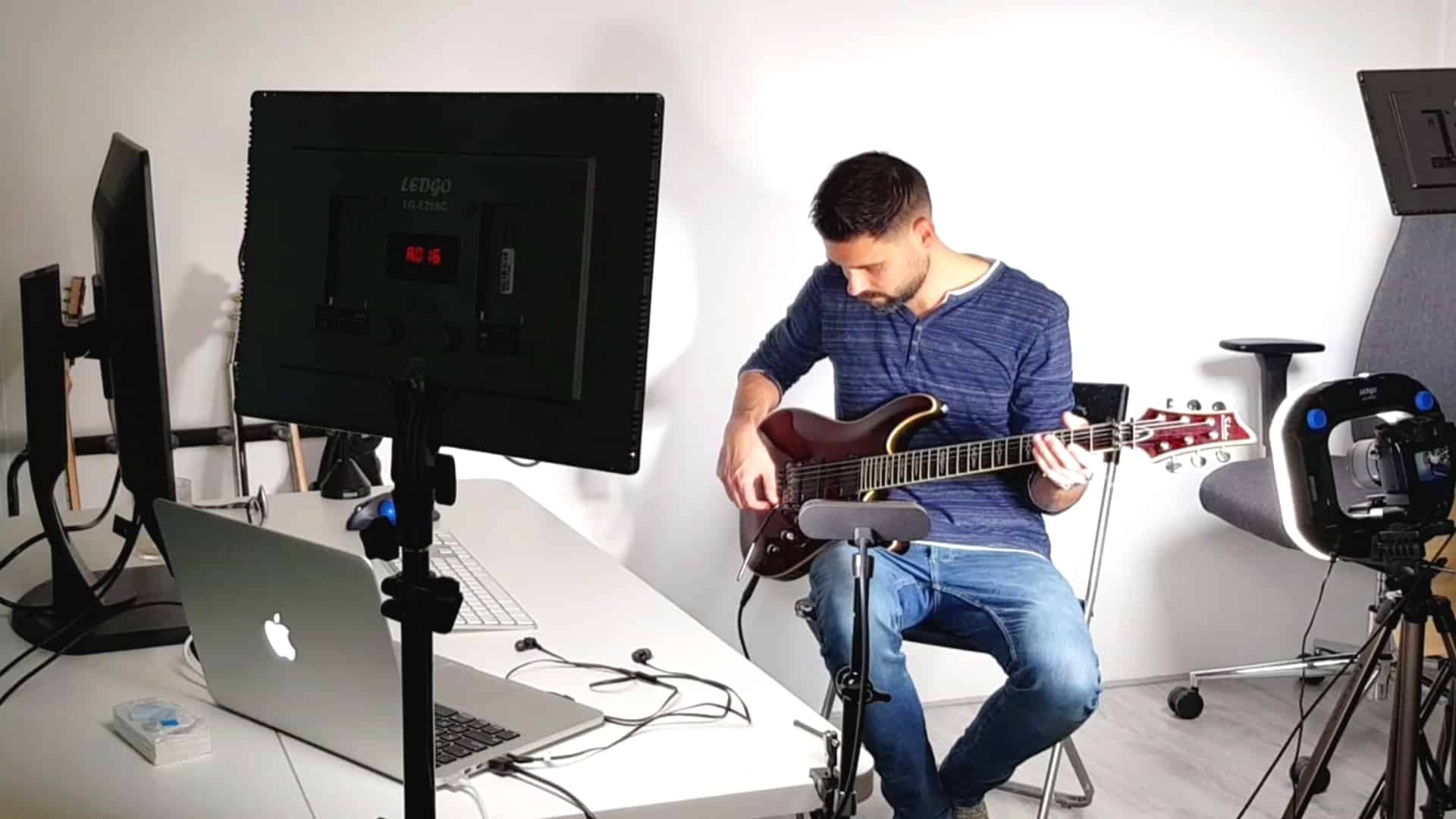An audio engineer is concerned with the recording, manipulation, mixing and reproduction of sound.
Many audio engineers creatively use technologies to produce sound for film, radio, television, music, electronic products and computer games.

Alternatively, the term audio engineer can refer to a scientist or engineer who develops new audio technologies working within the field of acoustical engineering.
Audio engineering concerns the creative and practical aspects of sounds including speech and music, as well as the development of new audio technologies and advancing scientific understanding of audible sound.
What do audio engineers use?
Audio engineers use a wide range of specialized equipment to do their job. Equipment can include microphones, mixers, computers, and sound editing software.
Some of the most important tools that audio engineers use are digital audio workstations (DAWs), which allow them to record and edit sounds digitally. A popular DAW is ProTools.
Audio engineers use their skills and equipment to create various types of audio content, such as music, sound effects, dialogues and voice-overs. They also need to be able to work with different types of audio files, such as WAV, MP3 and AIFF.
Audio engineering is a highly technical field, and audio engineers usually have a degree in electronics, engineering or computer science.
Getting a related job as an intern can be a great way to gain relevant experience and begin building a career as an audio engineer.
What jobs can audio engineers get?
Audio engineers can pursue a wide range of career opportunities, such as in radio or TV broadcasting, music recording and production, theater sound design, video game development, and more.
There are also many jobs available in audio engineering consultancies and software development companies. Some audio engineers may choose to work freelance and offer their services directly to clients.
Famous audio engineers
Famous audio engineers include George Martin, who worked with the Beatles, and Brian Eno, who has produced music for a number of popular artists.
How to become an audio engineer
The first step to becoming an audio engineer is to gain the relevant technical knowledge and skills. This typically involves pursuing a degree in electronics, engineering, or computer science.
Many audio engineers also gain hands-on experience by taking on internships or apprenticeships at recording studios and media production companies.
Once you have developed your skills and gained relevant experience, you can begin to look for work in the field.
How to get work as an audio engineer
There are a number of ways to find work as an audio engineer.
Some audio engineers choose to pursue full-time or freelance positions at media companies and recording studios, while others may look for opportunities in other areas such as software development or theater sound design.
Networking with other professionals in the industry can be helpful in finding job leads and opportunities.
Additionally, many audio engineers choose to advertise their services online or through directories such as Audio Engineering Society.
Advice for those considering a career in audio engineering
Are audio engineers in demand?
The demand for audio engineers varies depending on the specific industry.
For example, the Bureau of Labor Statistics reports that employment of broadcast and sound engineering technicians is projected to grow 4 percent, about as fast as the average for all occupations.
However, job prospects in some industries such as music recording may be more competitive. Overall, the demand for audio engineers is expected to remain steady in the coming years.
Is audio engineering a good career?
Audio engineering is a very rewarding career with many opportunities for growth and advancement. It requires a high level of technical expertise, attention to detail, and creativity.
Those who are passionate about music or other types of sound will likely find that audio engineering is an exciting and rewarding field to pursue.
However, it can also be a challenging profession due to the fast-paced and constantly evolving nature of the industry.
Therefore, it is important to have a strong work ethic and a willingness to keep learning and adapting in order to succeed as an audio engineer.
How much do audio engineers earn?
Audio engineers typically earn an hourly wage or an annual salary. Salaries can vary depending on factors such as experience, skills, employer, and location.
According to the website PayScale, audio engineers in the United States earn an average salary of $52,000 per year. Audio engineers in the United Kingdom earn an average salary of £30,000 per year.
Conclusion
Audio engineers play an important role in the production of sound for a variety of industries. They use their technical knowledge and skills to create, mix, and reproduce sound for all of the things we love to go see and listen to.
I'm Joost Nusselder, the founder of Neaera and a content marketer, dad, and love trying out new equipment with guitar at the heart of my passion, and together with my team, I've been creating in-depth blog articles since 2020 to help loyal readers with recording and guitar tips.

